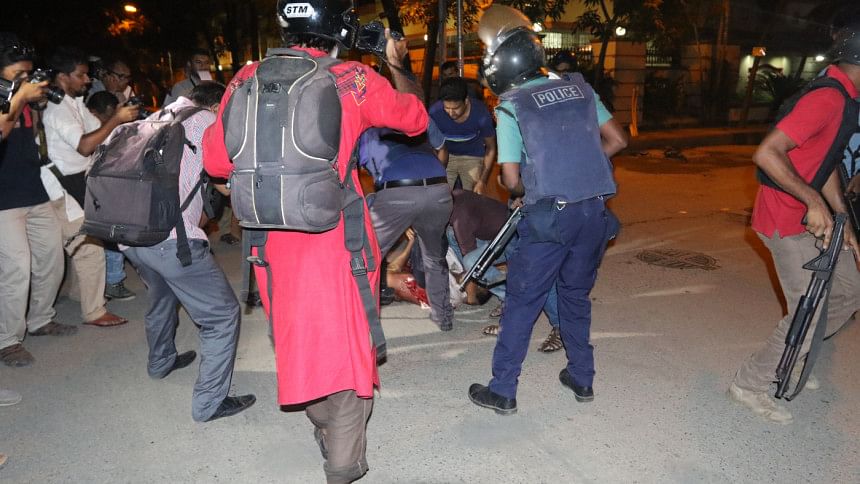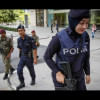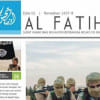Ramifications of terror attacks in Bangladesh

At a time when Bangladesh has broken the 6 percent growth trap and has begun its journey towards achieving a faster growth of about 7 percent, and at a time when Bangladesh has achieved the status of a lower middle income country with a per capita income of USD1314 in 2015, it experiences the greatest shock in recent times. This has suddenly changed the perspective on Bangladesh. The ruthless killing of 20 lives, including 17 foreigners at the Holey Artisan Bakery of Gulshan in Dhaka on July 1, 2016, by terrorists has brought new realities for Bangladesh. A country which boasts to be a moderately Islamic country, holding the values of Islam yet being tolerant to other religions and a country that is reputed for its warmth and hospitality towards foreign nationals, has come under the global radar due to the brutality of recent terror attacks. While the grief for the lost lives is going to make a permanent place in our hearts, the implications of this painful episode on other spheres of lives cannot be ignored either.
Economic development of Bangladesh is apprehended to bear the brunt of this incident. Countries which lost their citizens on that horrifying night - Japan, Italy and India - are all important partners of Bangladesh's development. Japan is the largest bilateral donor for Bangladesh. In 2015, the country disbursed USD366 million as foreign aid. Recently, Japan signed its 37th Official Development Assistance Loan Package for Bangladesh, which amounts to USD 1.65 billion, the largest ever in the history of Japan's ODA to Bangladesh, at an interest rate of 0.01 percent and repayment period of 40 years, including a 10-year grace period. About 230 Japanese companies have invested in Bangladesh, mostly in export processing zones; the investment amount is equivalent to USD 250 million. Japanese support and investment are in sectors such as disaster management, infrastructural development including power plants, deep sea port and metro rail. Tragically, the seven Japanese who were killed during the Dhaka terror attack were working for Bangladesh's metro-rail development project. Bangladesh's exports to Japan were worth USD 615 million in 2015, of which the share of RMG was USD 448 million.
As for Italy, it is one of the important export destinations for Bangladeshi products, particularly readymade garments. In 2015, Bangladesh exported goods worth USD 1,170 million, of which USD 1,070 million constituted of apparels. Italy is also a source of remittance for Bangladesh. On the other hand, India's aid disbursement amounted to about USD 93 million, while exports from Bangladesh to India were worth USD 542 million in 2015. Bangladesh expects these countries to continue supporting its efforts in achieving sustainable economic growth and poverty alleviation in the coming days. The assurance of the prime ministers of the respective countries to work together towards counter-terrorism is the recognition of the fact that terrorism is now a global phenomenon which kills people across the globe – Dhaka, Istanbul, Paris, Nice, Iraq.
On its part, Bangladesh has to work hard in bringing back the confidence of investors, development partners and the foreign community. The damage has already been done through worldwide media coverage. Now Bangladesh needs to reassure foreigners working here about their safety. The government has beefed up the security of the diplomatic zone in Gulshan and Baridhara, and other important places, including the Dhaka airport. But there are also foreign consultants and officials involved with projects, who are working at the field level. Their safety should also be ensured. We should also be careful in sending out our messages to the global community. While the Prime Minister fears more terror attacks in the country, some ministers are probably trying to show a brave face, dispelling possible negative impacts of the recent terror attacks in Bangladesh.
But the terror attack at Holey Artisan Bakery has been taken very seriously by the diplomatic community and development partners working in Dhaka. Some of them have given their officials the option to send their families to their respective countries, and many officials have already started to move their families out of Dhaka. Some are considering continuing their operation through regional offices, such as Delhi or Bangkok. We hope that this will not have any negative impact on the size of their operation in Bangladesh. But this obviously is an indication of the insecurity felt by foreigners in Bangladesh. This will have an impact on prospective investors and visitors to Bangladesh. As an important sourcing destination of apparels, the country may face new challenges if buyers do not feel secure to come to Bangladesh, and if they place their orders in other countries.
The shocking revelation of the terrorists' social background has prompted us to reflect on our education system, particularly that of the private universities where some of these terrorists studied. Run like private banks, some of these universities have made education a commodity, through which they can mint money. Many of these universities do not have a registrar or a proctor, and the Vice Chancellor has no say at the board room. Several of these universities have mushroomed through high profile connections without any plans for human resources and curriculum. Borrowed teachers from public universities often find no reason to be an integral part of the university. The curriculum of these universities does not include holistic education that helps students to become enlightened human beings. Instead, they try to cater to the need of the corporate world, sprinkling a bit of everything in the syllabus. It is time to bring an overall change in the education system.
Globally, the impact of terrorism has been manifested through reduced growth, mainly due to higher government expenditure for actions against counter-terrorism and loss of investment. The new reality dictates that Bangladesh has to strategise its security measures with the help of its friends so that its growth momentum can continue.
The writer is Research Director at the Centre for Policy Dialogue.

 For all latest news, follow The Daily Star's Google News channel.
For all latest news, follow The Daily Star's Google News channel. 








Comments